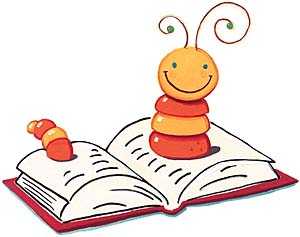Printz Award: How I Live Now
1. Rosoff, Meg. (2004). How I live now. New York: Wendy Lamb Books.
2. Summary: Fifteen-year old Daisy is leaving her home in New York to live with family in England. Although she has never meet her relatives, she is glad to leave her father and pregnant stepmother, "Davina the Diabolical". Daisy soon begins to love her aunt and four cousins, especially her fourteen-year old cousin, Edmond. Daisy is learning to adjust to her new life with her cousins and her growing affection for Edmond when war begins to erupt around her; ripping apart the family and destroying the land.
3. Critical Analysis: How I Live Now is a highly-acclaimed novel written by Meg Rosoff in 2004. It garnered much respect in the literary community and was the recipient of many awards, including: the 2004 Guardian Children's Fiction Prize, the 2005 Michael L. Printz Award, and the 2005 Branford Boase Award.
In How I Live Now, Meg Rosoff touches upon subjects that today's young adults face: teenage love, self-importance, and family ties (to name a few). On the other hand, Rosoff boldly ventures into topics that are more uncomfortable to address. The protagonist, Daisy, struggles with the blame she places upon herself for her mother's death, "It's a shame, starting out your first day on the planet as a murderer but there you go, I didn't have much choice at the time" (p. 19). And, with her father's dating life and now marriage, Daisy feels quite out-of-control. She becomes anorexic in order to garner some control of her life and soon realizes she is good at it. In a 2013 interview with Elena Shepperd for Mic.com, Meg Rosoff explains that she wanted to talk about the problems that teenagers today face, what she dubbed as "first world problems". Rosoff does such a wonderful job with Daisy's character development. Daisy begins the novel with an inward-facing attitude which slowly begins to change as she needs to be a protector and guardian for her nine-year old cousin, Piper. Another subject that some challengers of the book found taboo was the fact that Daisy and Edmond were in a relationship as cousins. Challengers believe that the topic of incest is too sensitive for young readers.
The wonder in this book lies in Daisy's narration and interior monologue. Her voice is so pure and unfiltered:
Let’s try to understand that falling into a sexual and emotional thrall with an underage blood relative hadn’t been on my list of Things to Do while visiting England, but I was coming around to the belief that whether you liked it or not, Things Happen and once they start happening you pretty much have to hold on for dear life and see where they drop you when they stop. (47)
Readers are instantly drawn to understand Daisy's position. She speaks as most teenage girls do, with a self-important air. Daisy casts her concern for the war strictly in terms of how it affects her. And, eventually, the war does affect Daisy by tearing her away from Edmond. This juxtaposition is where the true question of the novel is revealed: is the power of love enough to overcome the power of war?
Touching on sensitive subjects, How I Live Now is a beautifully written, powerful novel. There is no mistaking why it is so critically acclaimed.
References
Sheppard, Elena. (2013). How I live now author Meg Rosoff on what happens when your book becomes a movie. Arts.Mic. Retrieved June 23, 2014 from http://mic.com/articles/72639/how-i-live-now-author-meg-rosoff-on-what-happens-when-your-book-becomes-a-movie.


No comments:
Post a Comment